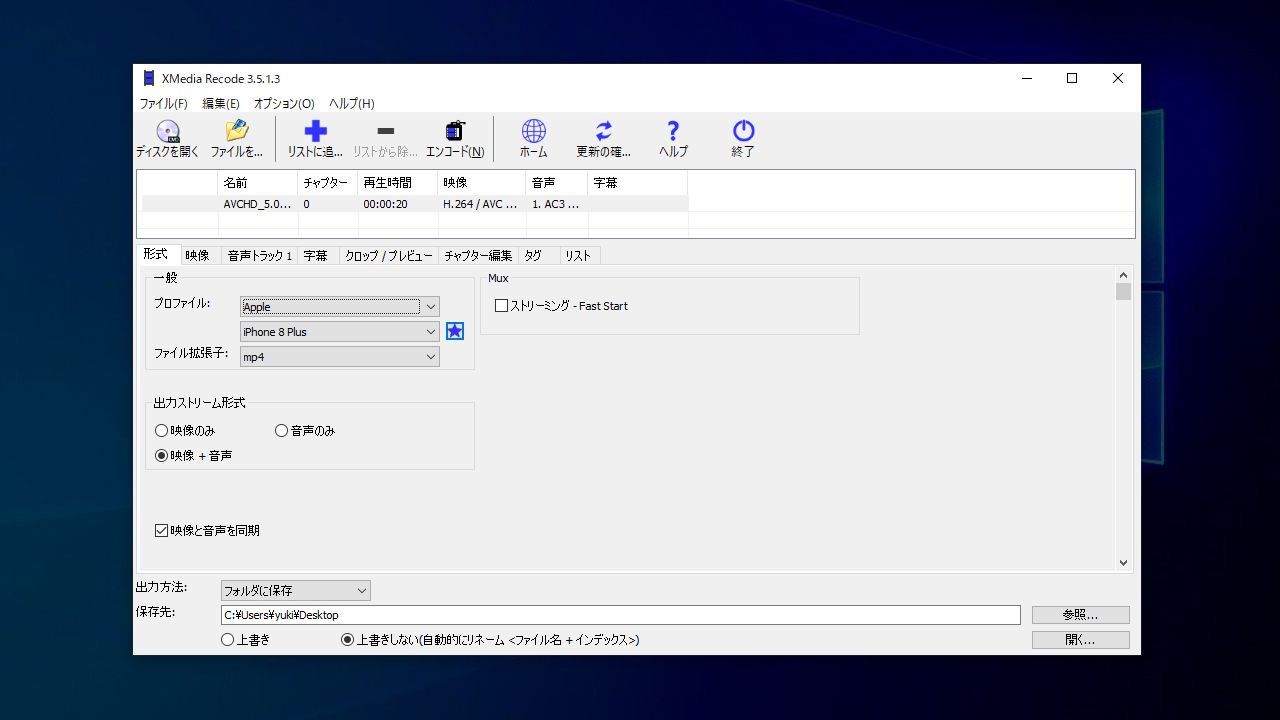


(Notably the "Shangri-La" in FC4 where the reds are turned into very grey "reds".)

Most of the time this doesn't bother me, but sometimes it is so ridiculously obvious it positively hurts my eyes with vibrant colours reduced to absolute grey garbage. From what I read, PCM is better that DTS or DD, not sure.I am converting fraps AVI videos to MP4s and I've been using a program called Xmedia Recode - which is just a shell around FFMPEG for the grunt work - but I am finding my output videos are "washed out". However, my AV Receiver shows PCM instead of DD, DTS, etc.
#XMEDIA RECODE VIDEO COMES OUT CHOPPY TRIAL#
My last trial that just completed seemed to work well. So it's always better to convert from a "pure rip" then to convert something that has already been converted previously. One thing is certain and that is that every time you transcode/convert a file using a LOSSY compression mechanism you ARE degrading quality. You can "micro manage" the CRF based on content or types of content or just experiment with dramas, action, sports to find the "one number" that always works for you quality wise and stick with it to make life simpler. So these are things worth looking at and testing in your environment. Depending if you are limited on your bandwidth up from your server the difference in bitrate between an 18 to 20 change could be the difference in direct play or a transcode on top of your conversions. If you can't tell the difference in quality between say 18 or 20 then look at file size difference as likely the 18 will be bigger and have a higher overall bitrate. However I think each person should try different values themselves to learn what they like.
#XMEDIA RECODE VIDEO COMES OUT CHOPPY MOVIE#
If you're doing specific movies like The Notebook you can likely use a higher number as there isn't much action or fast scenes, where a Transformers movie might want a lower number to hold more detail. That produces better quality than the defaults but isn't using crazy low rates with diminishing returns.That works pretty well for processing lots of files at one time. So 23 becomes 20 for DVD, 25 instead of 28 for Bluray. What I do usually, is drop the default CRF down about 3 points below the default. I don't worry to much about the starting size of a file other than a rough guess of quality if I don't know how it was created. The Bluray media can use a worse constant quality setting because there is a lot more bits to start with and with more detail the algorithms have more flexibility. Do you'll see a default of 23 for DVD quality and 28 for Bluray quality which might seem backward but it's not. In CRF a lower number means a "better" result. Switching to Constant Quality makes sense because it guarantees that you get consistent results from file to file without having to know the media well and works great in batch processing of files. So in scenes without much detail or change the bitrate needed to support the compression will be low but is fast changing scenes as often found is action movies more bits will be needed to hold the constant quality. It will use whatever bits is needed to hold detail at a specific quality level. With the constant quality setting you never know how small your file will convert because the conversion is based on quality not bitrate. For Bluray or higher quality generally a 28 is recommended by I use 23 to 25. For DVD quality a CRF of 23 is recommended but I preferred 20. Instead of converting using some bitrate threshold you instead do you conversion based on a quality level. The idea of this mode and what I always use when converting to save storage space is this Constant Quality mode. In xmedia Recode this will be the "rate control mode" setting and "Quality" setting. That was supposed to say CRF (corrected) which is short for Constant Rate Factor.


 0 kommentar(er)
0 kommentar(er)
